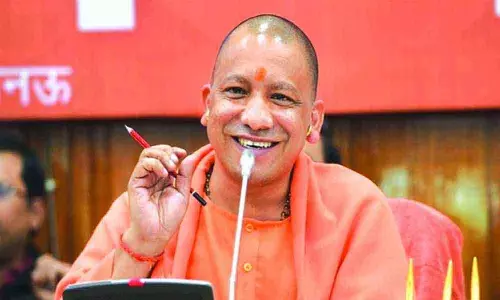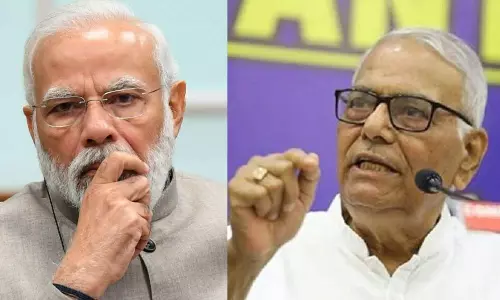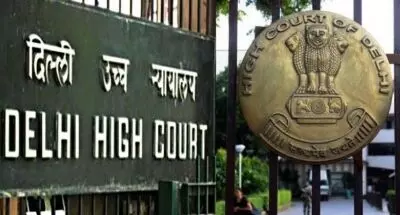
Delhi HC seeks NTA's response on plea to conduct CLAT in regional languages
text_fieldsNew Delhi: The Delhi High Court on Friday asked the National Testing Agency (NTA) to file a reply on a PIL seeking the Common Law Admission Test (CLAT) 2024 be held in all regional languages listed in the Constitution's Eighth Schedule, in addition to English.
Currently, CLAT is conducted exclusively in English, and the exam for the upcoming 2024 academic year is scheduled for December.
A division bench of Chief Justice Satish Chandra Sharma and Justice Subramonium Prasad asked NTA if the CLAT questions can be translated into other languages.
The bench directed the Centre's lawyer to file a detailed affidavit as it indicated that it has no objection to the prayers made in the petition.
The petitioner's counsel on Friday argued that since the Bar Council of India (BCI) conducts the All-India Bar Examination in several regional languages, the Consortium of National Law Universities conducting CLAT should also make similar efforts.
Senior advocate Siddharth Aggarwal, representing the consortium, contended that while other competitive examinations may use simple translations, CLAT is not based on such a model and argued that holding CLAT in multiple languages involves more than straightforward translation.
However, the court responded by saying that it would first hear the NTA on the matter and the court also observed that other competitive examinations like CLAT use multiple-choice questions and are conducted in languages other than English.
Last month, the BCI, in an affidavit, had said that if CLAT is conducted in regional languages, it will give opportunities to more citizens to opt for law as a career.
It was further submitted that the All-India Bar Examination held on February 5, was decided to be conducted in 23 languages including English.
Earlier, the consortium had informed the high court that preparations for the CLAT for the academic year 2024 are well underway and assured the bench of Chief Justice Sharma and Justice Prasad that it would be capable of devising a thorough roadmap for the eventual inclusion of additional languages in the CLAT examination.
The consortium had said that its advisory board, in collaboration with the governing body and executive committee, will actively address the substantive and procedural challenges and formulate a comprehensive plan to broaden the scope of the CLAT examination.
However, the bench instructed the consortium's expert committee to address the matter and decide during its next meeting while scheduling the next hearing on September 1.
According to the plea, the CLAT examination fails to provide equal opportunities to students whose educational backgrounds are rooted in regional languages. It contends that conducting the CLAT (UG) examination exclusively in English is arbitrary, discriminatory, and violates Articles 14 and 29(2) of the Constitution.
The petitioner also relied on a recent survey conducted by IDIA Trust, which indicates that more than 95 percent of the surveyed students come from schools where English is the medium of instruction at both the secondary and higher secondary levels.
Furthermore, the petitioner argues that the new Education Policy of 2020 and the Right of Children to Free and Compulsory Education Act of 2009 advocate the use of the mother tongue as the medium of instruction in schools and higher education institutions.
With inputs from IANS
























